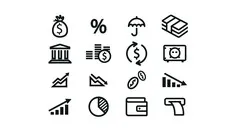
Mathematical Economics 
This course, Mathematical Economics, is designed to help learners understand Economics using Mathematics. It covers topics such as building models, solving complex problems, measuring the effect of change, and exploring Economic dynamics. Learners will gain skills in Scientific Thinking, Logical Thinking, Critical Thinking, and Analytical Thinking. Pre-requisites for this course are Elementary Economics and Mathematics. ▼
ADVERTISEMENT
Course Feature
![]() Cost:
Cost:
Free
![]() Provider:
Provider:
ThaiMOOC
![]() Certificate:
Certificate:
Paid Certification
![]() Language:
Language:
English
![]() Start Date:
Start Date:
31st Jul, 2023
Course Overview
❗The content presented here is sourced directly from ThaiMOOC platform. For comprehensive course details, including enrollment information, simply click on the 'Go to class' link on our website.
Updated in [March 20th, 2023]
Welcome to the Mathematical Economics course! This course is designed to help learners understand Economics using Mathematics. It will also be beneficial for those looking to solve problems in Engineering, Architecture, Medicine, Finance, Management, Policy-making and Analytics.
The objectives of this course are to help learners build models by expressing words in symbols, numbers and equations, explore techniques to solve complex problems, measure the effect of change and discover techniques to improve decision-making processes, and explore Economic dynamics.
By the end of this course, learners will have gained scientific thinking, logical thinking, critical thinking, and analytical thinking skills.
In order to take this course, learners should have a basic understanding of Economics and Mathematics.
[Applications]
After completing this course, learners will be able to apply the knowledge and skills gained to solve complex economic problems. They will be able to build models by expressing words in symbols, numbers and equations, measure the effect of change and discover techniques to improve their decision-making process. Additionally, learners will be able to apply the knowledge and skills gained to solve problems in Engineering, Architecture, Medicine, Finance, Management, Policy-making and Analytics.
[Career Paths]
1. Economic Analyst: Economic Analysts use mathematical and statistical models to analyze economic data and trends. They use this data to make predictions about the future of the economy and to advise businesses and governments on economic policy. They also develop strategies to help businesses and governments maximize their profits and minimize their losses.
2. Financial Analyst: Financial Analysts use mathematical and statistical models to analyze financial data and trends. They use this data to make predictions about the future of the financial markets and to advise businesses and investors on financial decisions. They also develop strategies to help businesses and investors maximize their returns and minimize their risks.
3. Data Scientist: Data Scientists use mathematical and statistical models to analyze large datasets and uncover patterns and trends. They use this data to make predictions about the future and to advise businesses and governments on decisions. They also develop strategies to help businesses and governments maximize their profits and minimize their losses.
4. Quantitative Analyst: Quantitative Analysts use mathematical and statistical models to analyze financial and economic data and trends. They use this data to make predictions about the future of the markets and to advise businesses and investors on financial decisions. They also develop strategies to help businesses and investors maximize their returns and minimize their risks.
Developing Trends:
1. Automation: Automation is becoming increasingly important in the field of mathematical economics, as it allows for faster and more accurate analysis of data. Automation also allows for more efficient use of resources, as it eliminates the need for manual labor.
2. Big Data: Big data is becoming increasingly important in the field of mathematical economics, as it allows for more accurate analysis of large datasets. Big data also allows for more efficient use of resources, as it eliminates the need for manual labor.
3. Machine Learning: Machine learning is becoming increasingly important in the field of mathematical economics, as it allows for more accurate predictions and analysis of data. Machine learning also allows for more efficient use of resources, as it eliminates the need for manual labor.
4. Artificial Intelligence: Artificial intelligence is becoming increasingly important in the field of mathematical economics, as it allows for more accurate predictions and analysis of data. Artificial intelligence also allows for more efficient use of resources, as it eliminates the need for manual labor.
[Education Paths]
1. Bachelor of Science in Mathematical Economics: This degree program focuses on the application of mathematics to economics. It covers topics such as microeconomics, macroeconomics, game theory, econometrics, and mathematical modeling. Students will learn how to use mathematical tools to analyze economic data and develop economic models. This degree is ideal for those who want to pursue a career in economics, finance, or business.
2. Master of Science in Mathematical Economics: This degree program is designed for those who want to specialize in the application of mathematics to economics. It covers advanced topics such as economic theory, econometrics, and mathematical modeling. Students will learn how to use mathematical tools to analyze economic data and develop economic models. This degree is ideal for those who want to pursue a career in economics, finance, or business.
3. Doctor of Philosophy in Mathematical Economics: This degree program is designed for those who want to specialize in the application of mathematics to economics. It covers advanced topics such as economic theory, econometrics, and mathematical modeling. Students will learn how to use mathematical tools to analyze economic data and develop economic models. This degree is ideal for those who want to pursue a career in economics, finance, or business.
4. Master of Business Administration in Mathematical Economics: This degree program is designed for those who want to specialize in the application of mathematics to economics. It covers topics such as microeconomics, macroeconomics, game theory, econometrics, and mathematical modeling. Students will learn how to use mathematical tools to analyze economic data and develop economic models. This degree is ideal for those who want to pursue a career in economics, finance, or business.
The development trends in mathematical economics are the use of big data and machine learning to analyze economic data, the use of artificial intelligence to develop economic models, and the use of blockchain technology to create new economic systems.
Course Provider

Provider ThaiMOOC's Stats at AZClass
Discussion and Reviews
0.0 (Based on 0 reviews)
Explore Similar Online Courses

Google Cloud Run Serverless Workshop

Practical Game Development in Unity 4: Level 21

Python for Informatics: Exploring Information

Social Network Analysis

Introduction to Systematic Review and Meta-Analysis

The Analytics Edge

DCO042 - Python For Informatics

Causal Diagrams: Draw Your Assumptions Before Your Conclusions

Whole genome sequencing of bacterial genomes - tools and applications

Econ 101: The Complete Intro to Economics For Beginners

Economics: Elasticity and its Business Aspect on Pricing

Behavioral Economics Fundamentals
 Related Categories
Related Categories
 Popular Providers
Popular Providers
Quiz
 Submitted Sucessfully
Submitted Sucessfully
1. What are the objectives of the course?
2. What are the pre-requisites for the course?
3. What skills will you gain from this course?


Start your review of Mathematical Economics